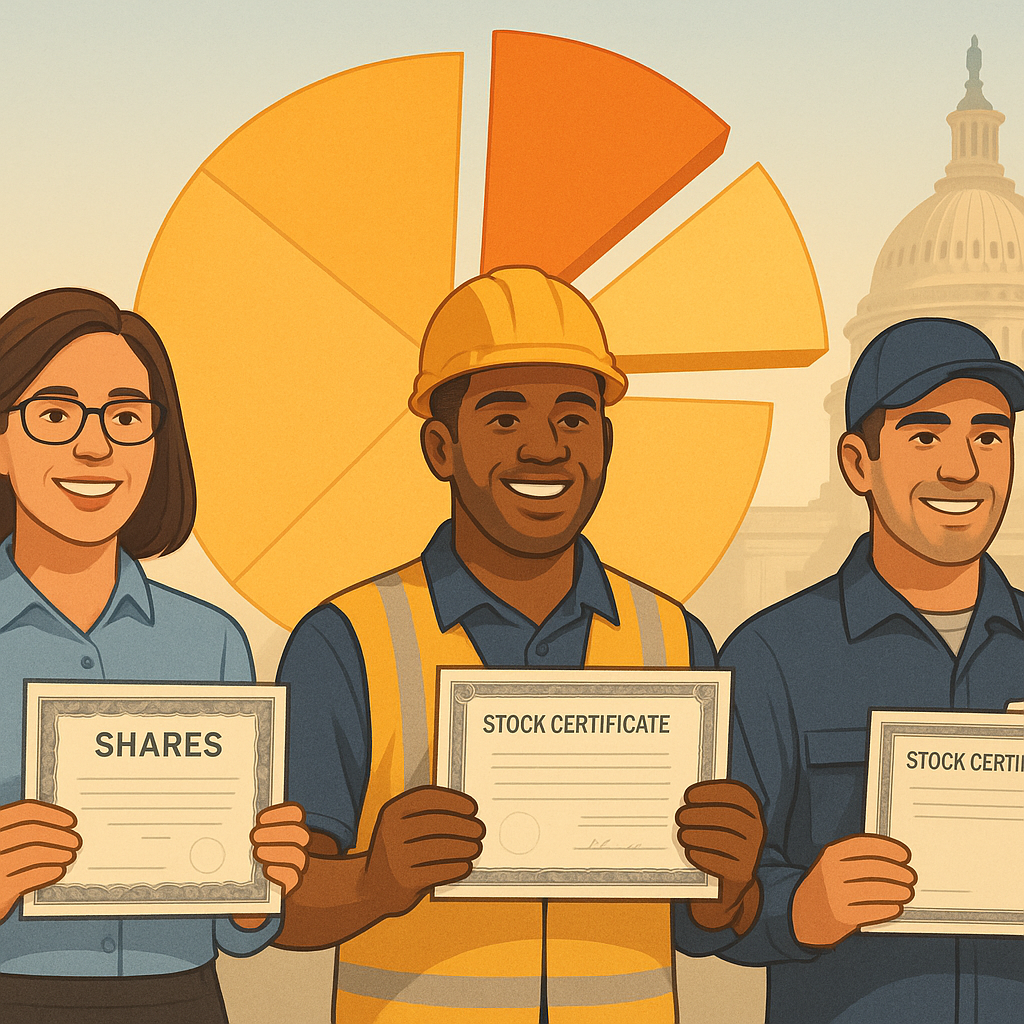A new bill working its way through the labyrinthine halls of Congress might actually do something interesting for once: reward companies that give their regular employees—not just the corner-office crowd—a piece of the ownership pie.
The legislation would offer tax incentives to businesses that distribute at least 5% of their stock to rank-and-file workers. Revolutionary? Hardly. But in our current economic landscape, it's something.
I've been watching the growing disconnect between Wall Street and Main Street for years now, and the numbers tell a depressing story. While roughly 56% of Americans technically own some form of stock, the distribution is wildly lopsided. The top 10% of households control about 89% of all stock market wealth. So when CNBC anchors breathlessly report that "markets hit an all-time high today," remember whose boats are actually rising with that tide.
This bill tries to nudge things in a different direction.
The tax benefits would kick in for companies that share ownership with at least 80% of their workforce. Not just executives and their golden parachutes, but the folks answering phones, stocking shelves, and fixing that eternally jammed printer on the third floor.
Look, anyone paying attention knows the relationship between labor and capital has been on a one-way street since the 1970s. Labor's share of GDP has steadily declined while corporate profits have generally headed north. This legislation essentially says, "What if more workers became capitalists too?"
It's an approach that makes some intellectual sense. Rather than the tired old "tax-and-redistribute" model, this creates pathways for more Americans to own wealth-generating assets directly. Less Bernie Sanders, more... well, widespread capitalism.
But (and there's always a but), the details matter enormously in tax policy. The bill appears to be carrot rather than stick—incentivizing rather than mandating these programs. Will companies actually bite? Will they find creative ways to technically comply while minimizing the actual wealth transfer? And do employees even want company stock instead of cold, hard cash they can spend immediately?
We've seen versions of this movie before. ESOPs (Employee Stock Ownership Plans) have been around since the Nixon era, offering tax advantages to companies establishing employee ownership structures. Yet they remain relatively uncommon. Tech companies often give equity to employees at all levels, though usually wrapped in complex vesting schedules and restrictions that make them less valuable than they appear on paper.
I spoke with several economists last year who pointed to an interesting alignment of incentives when employees own a stake in their workplace. Research shows these companies often experience higher productivity, better innovation, and lower turnover. Employees with skin in the game tend to act more like... well, owners.
The tension, however, comes from our quarterly-earnings-obsessed corporate culture. Public companies face immense pressure to deliver short-term results to their shareholders—predominantly massive institutional investors who might not appreciate the long-term benefits of broader ownership. Diluting existing shareholders to include the warehouse staff might make sense over a decade, but it's a harder sell when analysts are focused on next quarter's numbers.
This bill seems to recognize this reality by offering tax goodies to offset the perceived costs.
(As an aside, I've always found it fascinating how many free-market enthusiasts become suspiciously quiet when proposals emerge to actually spread market participation more broadly. But that's a topic for another day.)
The whole approach reminds me of Louis Kelso—not exactly a household name, but the investment banker who pioneered ESOPs back in the mid-20th century. His argument was that capitalism's problem wasn't too much capitalism, but too little distribution of capital ownership. This legislation seems cut from similar philosophical cloth.
Will it pass in today's dysfunctional Congress? I wouldn't bet my 401(k) on it. But it represents an intriguing approach to addressing inequality—not by restraining wealth creation, but by broadening who gets to participate in it.
And that's worth watching... no matter how fat or thin your own portfolio happens to be.
